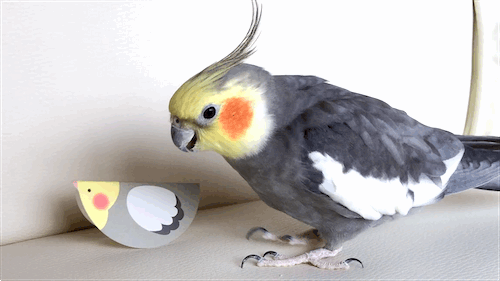-
Bitterness — like cancer Comment August 27, 2015 -
How to achieve happiness Comment August 27, 2015by Tenzin Gyatso, The Fourteenth Dalai Lama
For a start, it is possible to divide every kind of happiness and suffering into two main categories: mental and physical. Of the two, it is the mind that exerts the greatest influence on most of us. Unless we are either gravely ill or deprived of basic necessities, our physical condition plays a secondary role in life. If the body is content, we virtually ignore it. The mind, however, registers every event, no matter how small. Hence we should devote our most serious efforts to bringing about mental peace.
From my own limited experience I have found that the greatest degree of inner tranquility comes from the development of love and compassion.
The more we care for the happiness of others, the greater our own sense of well-being becomes. Cultivating a close, warm-hearted feeling for others automatically puts the mind at ease. This helps remove whatever fears or insecurities we may have and gives us the strength to cope with any obstacles we encounter. It is the ultimate source of success in life.
As long as we live in this world we are bound to encounter problems. If, at such times, we lose hope and become discouraged, we diminish our ability to face difficulties. If, on the other hand, we remember that it is not just ourselves but every one who has to undergo suffering, this more realistic perspective will increase our determination and capacity to overcome troubles. Indeed, with this attitude, each new obstacle can be seen as yet another valuable opportunity to improve our mind!
Thus we can strive gradually to become more compassionate, that is we can develop both genuine sympathy for others’ suffering and the will to help remove their pain. As a result, our own serenity and inner strength will increase.
-
Our need for love Comment August 27, 2015by Tenzin Gyatso, The Fourteenth Dalai Lama
Ultimately, the reason why love and compassion bring the greatest happiness is simply that our nature cherishes them above all else. The need for love lies at the very foundation of human existence. It results from the profound interdependence we all share with one another. However capable and skillful an individual may be, left alone, he or she will not survive. However vigorous and independent one may feel during the most prosperous periods of life, when one is sick or very young or very old, one must depend on the support of others.
Inter-dependence, of course, is a fundamental law of nature. Not only higher forms of life but also many of the smallest insects are social beings who, without any religion, law or education, survive by mutual cooperation based on an innate recognition of their interconnectedness. The most subtle level of material phenomena is also governed by interdependence. All phenomena from the planet we inhabit to the oceans, clouds, forests and flowers that surround us, arise in dependence upon subtle patterns of energy. Without their proper interaction, they dissolve and decay.
It is because our own human existence is so dependent on the help of others that our need for love lies at the very foundation of our existence. Therefore we need a genuine sense of responsibility and a sincere concern for the welfare of others.
We have to consider what we human beings really are. We are not like machine-made objects. If we are merely mechanical entities, then machines themselves could alleviate all of our sufferings and fulfill our needs.
However, since we are not solely material creatures, it is a mistake to place all our hopes for happiness on external development alone. Instead, we should consider our origins and nature to discover what we require.
Leaving aside the complex question of the creation and evolution of our universe, we can at least agree that each of us is the product of our own parents. In general, our conception took place not just in the context of sexual desire but from our parents’ decision to have a child. Such decisions are founded on responsibility and altruism – the parents compassionate commitment to care of their child until it is able to take care of itself. Thus, from the very moment of our conception, our parents’ love is directly in our creation.
Moreover, we are completely dependent upon our mothers’ care from the earliest stages of our growth. According to some scientists, a pregnant woman’s mental state, be it calm or agitated, has a direct physical effect on her unborn child.
The expression of love is also very important at the time of birth. Since the very first thing we do is suck milk from our mothers’ breast, we naturally feel close to her, and she must feel love for us in order to feed us properly; if she feels anger or resentment her milk may not flow freely.
Then there is the critical period of brain development from the time of birth up to at least the age of three or four, during which time loving physical contact is the single most important factor for the normal growth of the child. If the child is not held, hugged, cuddled, or loved, its development will be impaired and its brain will not mature properly.
Since a child cannot survive without the care of others, love is its most important nourishment. The happiness of childhood, the allaying of the child’s many fears and the healthy development of its self-confidence all depend directly upon love.
Nowadays, many children grow up in unhappy homes. If they do not receive proper affection, in later life they will rarely love their parents and, not infrequently, will find it hard to love others. This is very sad. Continue reading
-
Two types of seeds Comment August 27, 2015 -
Sleepy cat Comment August 27, 2015 -
Its truest victory Comment August 27, 2015 -
The way I see it… Comment August 27, 2015The way I see it, our natural human instinct is to fight or flee that which we perceive to be dangerous. Although this mechanism evolved to protect us, it serves as the single greatest limiting process to our growth. To put this process in perspective and not let it rule my life, I
expect the unexpected;
make the unfamiliar familiar;
make the unknown known;
make the uncomfortable comfortable;
believe the unbelievable.~Charles F. Glassman
-
Mistakes and failures Comment August 26, 2015 -
Curious Cockatiel Comment August 26, 2015In the wild, you’ll see immense flocks of cockatiels circling the sky in search of large bodies of water where they can rest, breed, and escape from the Australian heat. Cockatiels are very sociable birds and will get depressed if they are left alone for long periods of time. They may hit their heads against cages, pull their feathers, refuse to eat, or become angry. It’s best to get a pair of cockatiels if you know you’ll be out of your house for long periods of time. Source: Cockatiels
-
For a better future Comment August 26, 2015


















